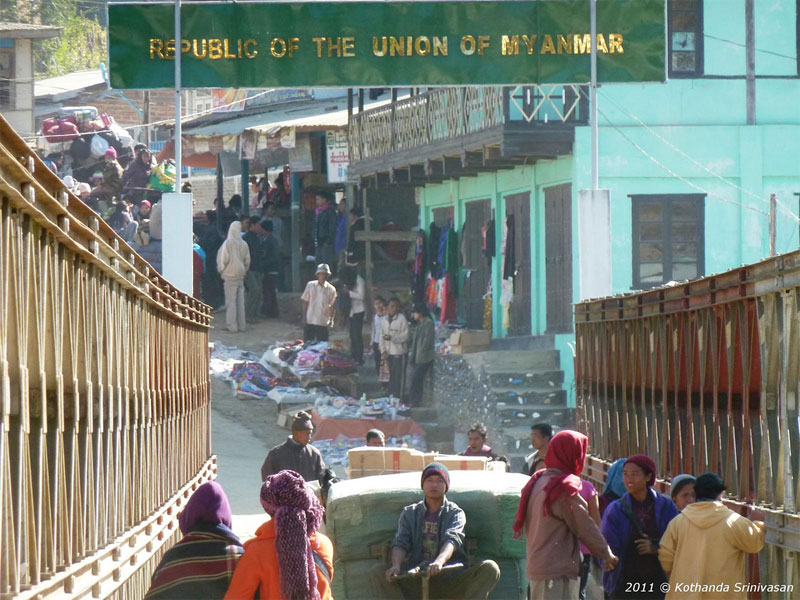Burmese and Indian entrepreneurs will meet at the Union of Myanmar Federation of Chambers and Commerce Industry (UMFCCI) in Rangoon on Monday to promote bilateral trade and investment, according to UMFCCI.
 An Indian business delegation from the Indo-Myanmar Chamber of Commerce and Industry will be trying to drum up business relationships in sectors including pulses and beans, timbers, sesame, pharmaceuticals, metal, tourism, construction, textile, automobile, clothing, livestock and agriculture, officials said.
An Indian business delegation from the Indo-Myanmar Chamber of Commerce and Industry will be trying to drum up business relationships in sectors including pulses and beans, timbers, sesame, pharmaceuticals, metal, tourism, construction, textile, automobile, clothing, livestock and agriculture, officials said.
According to official statistics, Burma-India bilateral trade reached US$ 426.37 million in the first four months (April- July) of the fiscal year 2012-13. Of the total, Burma’s export to India amounted to $ 329.49 million, while its import from India was valued at $96.89 million.
Mizzima reported earlier this month that bilateral trade between India and Burma is expected to more than double by 2015, the Burmese consul general told the Bengal Chamber of Commerce and Industry in Kolata.
Consul general Kyaw Swe Tint said trade is likely to grow from US$ 1.28 billion in 2010-11 to $3 billion 2014-15.
Agriculture, health, education, mineral resources and pharmaceuticals are expected to be key trade sectors between the two nations.
This summer, India and Burma signed 12 MoUs for extending co- operation in border development, in the field of defence and analysis and the establishment of joint trade and investment.
In the past, India was a major export market for pulses and beans produced in Burma. However, the export of pulses and beans to India has decreased in recent years, and there is a need for co-operation to shore up the exports of pulses and beans to previous levels, officials said.
Despite sharing a common border, Burma and India have not been able to make optimal use of border trade, according to reports.
While bilateral trade stood at $1.28 billion, the border trade was about $13 million. Border trade volume is just a little over one percent of total trade, officials said.
A May editorial in the New Light of Myanmar, a state-run newspaper, said India’s long experience in democracy would be valuable in Burma’s democratization process.
“Besides, India is one of the global emerging markets with its consumption power in multiple sectors growing bigger and bigger every year,” the editorial said, describing India as an energy-hungry giant.
“This giant can help us create more job opportunities, acquire technology and set up light and medium industries through investment in multiple sectors,” the editorial said.



